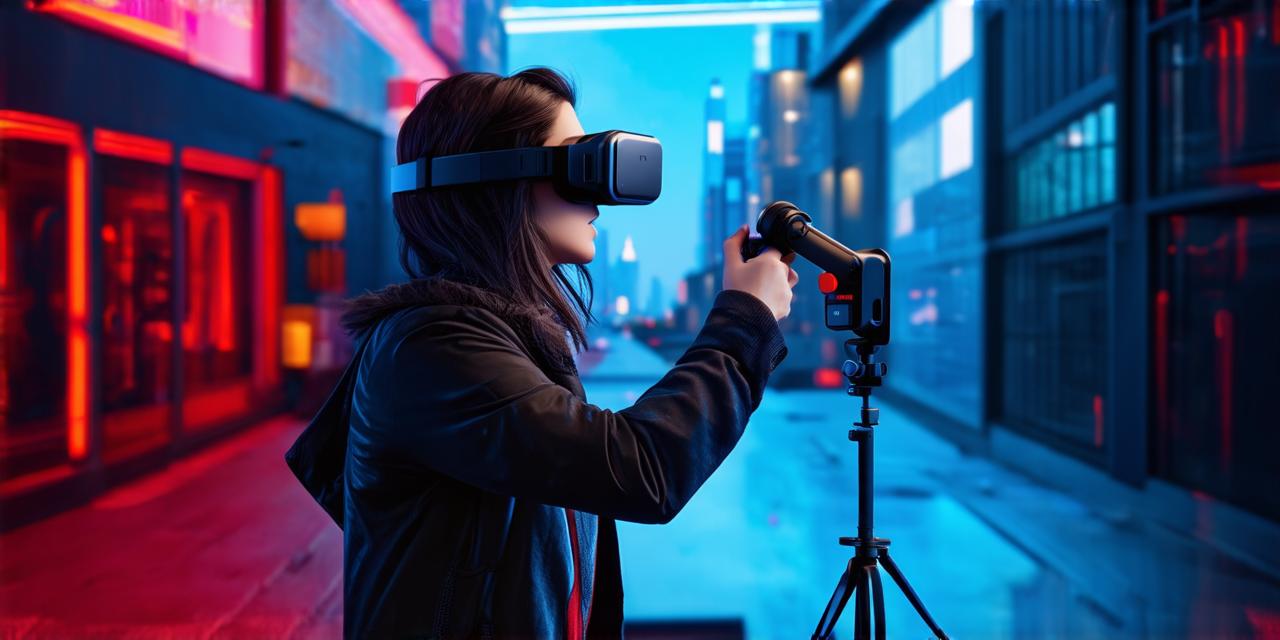Jersey City is a bustling urban area in New Jersey known for its diverse culture, vibrant nightlife, and rich history. In recent years, virtual reality (VR) has been gaining popularity as a cutting-edge technology that can enhance various industries in Jersey City. From tourism to education, healthcare, gaming, and more, VR offers numerous benefits that have the potential to revolutionize how we experience and interact with our environment.
In this article, we will explore the advantages of virtual reality in Jersey City, including its potential impact on tourism, education, healthcare, and more. We will also delve into some real-life examples of how VR is being used in these industries to improve efficiency, engagement, and overall experiences.
Virtual Reality in Tourism:
One of the most significant benefits of virtual reality in Jersey City is its potential to enhance tourism. By offering virtual tours of popular attractions, such as the Liberty State Park and the Statue of Liberty, tourists can experience these landmarks without having to physically visit them. This not only saves time and money but also allows for a more immersive experience that can help attract new visitors to Jersey City.
For example, the New York Hall of Science has implemented a VR exhibit called “The Great Barrier Reef,” which allows visitors to explore the underwater world of coral reefs. This exhibit has been a huge hit among tourists and has helped the museum attract more visitors.
Similarly, the Liberty Science Center has created a virtual reality exhibit called “Jersey City,” which allows students to experience the city’s history, culture, and landmarks in a 3D environment.
Virtual Reality in Education:
Another area where virtual reality is making a significant impact is education. In Jersey City, VR technology is being used to enhance classroom learning experiences by creating immersive environments that allow students to explore complex concepts and ideas.
For instance, the Liberty Science Center has created a virtual reality exhibit called “Jersey City,” which allows students to experience the city’s history, culture, and landmarks in a 3D environment. This exhibit not only provides an engaging learning experience but also helps students develop critical thinking and problem-solving skills.
Additionally, the New Jersey Institute of Technology has implemented a VR program called “Project Escape,” which allows students to solve complex problems through immersive experiences.
Virtual Reality in Healthcare:
Virtual reality is also being used in healthcare to improve patient outcomes and enhance the overall healthcare experience. In Jersey City, VR technology is being used to simulate surgical procedures, allowing doctors to practice their skills in a safe and controlled environment.
This can help reduce the risk of complications during actual surgeries and improve patient outcomes.
VR therapy has been shown to be effective in treating various mental health conditions, including anxiety, depression, and PTSD. By creating immersive environments that simulate real-life situations, patients can learn coping strategies and develop new skills in a safe and controlled environment.
Virtual Reality in Gaming:
Virtual reality is also being used in the gaming industry to create more immersive and engaging experiences for players. In Jersey City, VR gaming has become increasingly popular, with various game studios creating virtual reality games that allow players to immerse themselves in a new world of adventure and excitement.
For example, the Jersey Devil Arcade in Hoboken offers virtual reality games that allow players to experience the thrill of flying or diving through underwater environments. Similarly, the VR gaming lounge called “Virtual Reality Escape Room” in New Brunswick offers immersive escape room experiences that challenge players’ problem-solving and critical thinking skills.
Virtual Reality in Real Estate:
Virtual reality is also being used in the real estate industry to enhance property viewings and improve customer engagement. In Jersey City, virtual reality tours of properties have become increasingly popular, allowing potential buyers and renters to explore properties in a more immersive way.
This not only saves time and money but also allows potential buyers and renters to get a better sense of the space before making a decision.
For example, the real estate company “The Realty Group” has implemented a virtual reality program called “Virtual Staging,” which allows buyers and renters to visualize how furniture and decor would look in a property.
FAQs:
What is virtual reality?
Virtual reality is a computer-generated simulation of a three-dimensional environment that can be interacted with using specialized headsets or other devices.
How does virtual reality work?
Virtual reality works by simulating a 360-degree view of a digital environment, which is then projected onto a headset or other device to create an immersive experience for the user.
What industries are using virtual reality in Jersey City?
Virtual reality is being used in various industries in Jersey City, including tourism, education, healthcare, gaming, and real estate.
4.
